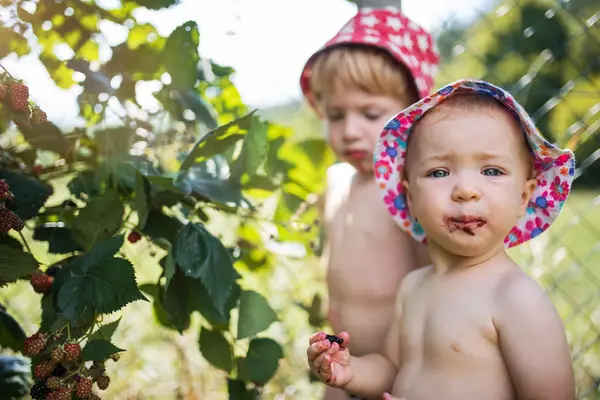Baby Development
Why Do Babies Blow Raspberries? Reasons and Benefits

Blowing raspberries is a delightful milestone in a baby’s development, often accompanied by giggles and joy. When babies stick out their tongues and make a fizzy or humming sound, they are engaging in an essential activity that aids in their language and motor skill development. While it may seem like playful behavior, blowing raspberries plays a crucial role in a baby’s speech progress and social interaction. Read on to discover when babies start blowing raspberries, the reasons behind it, and the benefits it offers.
When Do Babies Start Blowing Raspberries?
Babies typically begin blowing raspberries between four and six months of age. During this period, they also start cooing and gurgling, exploring their vocal abilities. Some babies may start earlier or later, and some may even skip this stage altogether. According to the Centers for Disease Control and Prevention (CDC), blowing raspberries is a key milestone in early language development and social interaction by six months.
Why Is Your Baby Blowing Raspberries?
Blowing raspberries is an important part of language development, allowing babies to practice using their tongue and lips while experimenting with different sounds. It serves as a form of vocal play, much like babbling. Additionally, babies may blow raspberries to gain attention from parents, as they begin responding to sounds and engaging in early communication. Studies suggest that parental reactions to baby sounds and actions can significantly influence cognitive and social development.
How to Respond When a Baby Blows Raspberries
Encouraging this milestone can help strengthen communication skills. Here are some ways to respond:
- Imitate the baby – Mimic their raspberry sounds to create a fun interaction and stimulate language development.
- Speak to them – Talking to your baby regularly helps them form connections between sounds and meaning.
- Sing to your baby – Songs and nursery rhymes engage babies and encourage them to experiment with vocalizations.
- Encourage new sounds – Introduce different sounds for your baby to mimic, which strengthens oral muscles.
- Maintain eye contact – This enhances bonding and ensures the baby is fully engaged in communication.
How Blowing Raspberries Benefits a Baby
Blowing raspberries is more than just a cute trick; it offers several developmental benefits:
- Strengthens facial muscles – This activity exercises the tongue, lips, and mouth, which are essential for future speech.
- Develops voice control – Babies learn how to manipulate pitch and volume, laying the foundation for spoken words.
- Teaches cause and effect – Babies notice how their actions (blowing raspberries) result in reactions from parents.
- Enhances bonding – Imitating raspberries and responding playfully helps deepen the parent-child connection.
- Soothes sore gums – Some babies blow raspberries as a self-soothing mechanism during teething.
Frequently Asked Questions
- Is blowing raspberries a developmental milestone?
Yes, it is an early language milestone and a precursor to babbling. However, some babies skip this phase and directly begin to babble. - How can I stop my baby from blowing raspberries while eating?
If your baby does this during meals, pause feeding briefly to signal that spitting food is not acceptable. - Is blowing raspberries a sign of teething?
Yes, increased saliva production during teething may lead to blowing bubbles and raspberries. - Do all babies blow raspberries?
Not necessarily—some may skip this stage altogether. However, parents can encourage it by demonstrating the behavior.
Blowing raspberries is a fun and beneficial activity that supports a baby’s speech and motor development. Parents can engage with their little one through imitation, talking, and singing, turning this simple action into a meaningful bonding experience. As babies grow, they naturally transition from blowing raspberries to forming consonant sounds and eventually speaking their first words.












